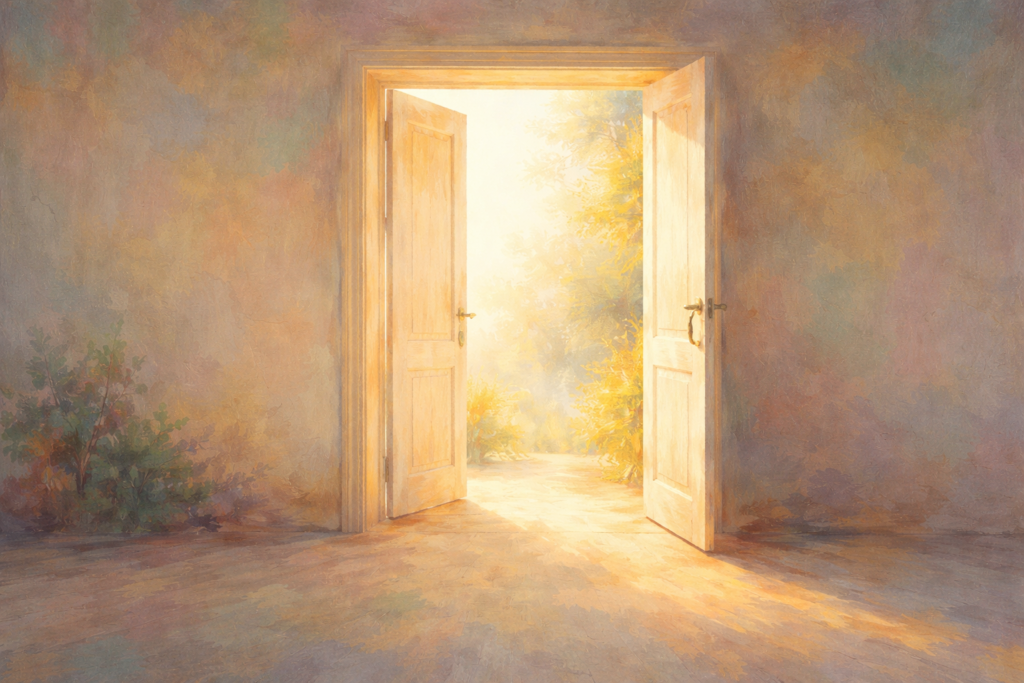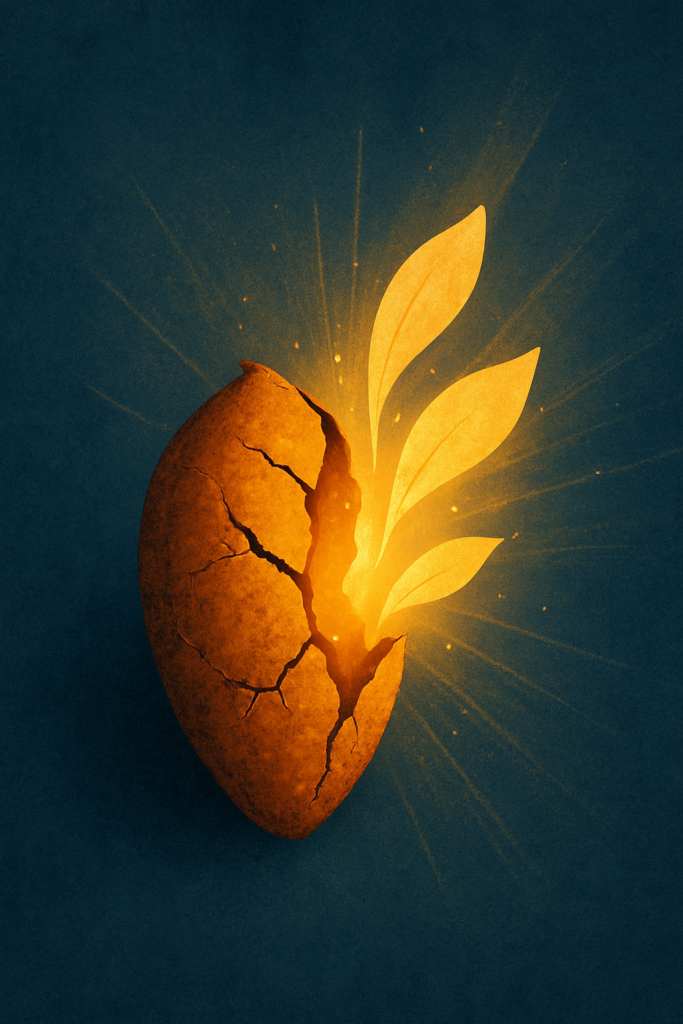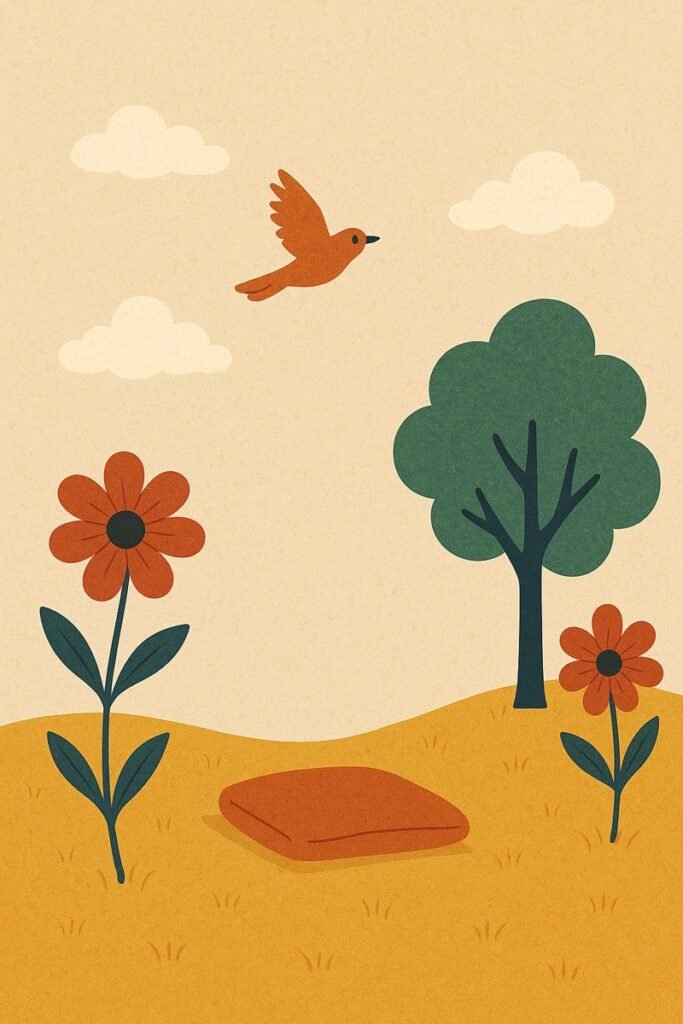We live under the illusion of closeness, but perhaps no two souls ever truly meet. We orbit, we intertwine, we collide in emotion, in time, in memory, yet remain untouched at the core.
Like parallel lines, we move close enough to feel fused, yet never lose our separateness.
Love, friendship, marriage and even ‘bhakti’/devotion to god ,they promise union. But is union ever real, or is it a longing?
A dream of dissolving into someone else, only to return to ourselves more aware of the space that separates?
In the dance of destiny, maybe it’s not about merging but witnessing, walking beside, never within. The ache we feel isn’t always from disconnection, but from the illusion that connection must erase the self.
The geometry of relationships
As children, we seek fusion. We want to be held so closely that there is no boundary between us and the world.
But adulthood demands a quiet reckoning: that no matter how deeply we love, how long we stay, or how fiercely we feel, we remain distinctly ourselves.
This is not a failure of connection, but perhaps its highest form, to be known without vanishing, to be loved without dissolving.
Relationships then become less about becoming one, and more about walking parallel, close, attuned, affected, yet sovereign.
Romantically, we often chase the fantasy of completion. When we fall in love, there’s a hunger, to be engulfed, or to engulf.
We want to devour and be devoured, physically and emotionally.
But even the most intense love can end in a painful fallout. Hearts shatter. The pain feels irreparable, and sometimes, maybe it is. Yet even if there is no falling out, even when passion is shared, yet there is a feeling of emptiness.
It feels even after pouring your cup completely, something in you still remains, untouched, undisturbed, unspilled.
And that what remains is the ‘I’ which never loses itself, no matter how much we try to give it away.
Sometimes we come across those friendships that make us believe we can’t function without the other. We cling. We depend. Our happiness and sadness depend on the existence of others.
These siamese twins are not conjoined physically, but in emotion.
And then the lore of marriage. The popular belief that marriage is the goal which will lead to the bliss that everyone has the right to. But even when love fades in a marriage, we hold onto the belief that this person is our eternal anchor, still our savior, the messiah.
And despite this yearning and this effort to keep the relationship intact, this bond frays, the warmth goes away. The hope to attain this ultimate bliss quietly diminishes.
We may emotionally be hanging on by a thread, even if, officially, the relationship stays intact.
When I try to reach God
Spiritually, when we speak of merging with a higher power or becoming one with all, this idea rests on a profound paradox. In non-dual traditions like Advaita Vedanta and certain schools of Buddhism, the individual soul is not separate from the ultimate reality, it is the higher power. The boundaries between “I” and “other” dissolve; there is only oneness.
The self is seen as an illusion, and awakening means realizing that soul and divine are one and the same. Probably this is where our present form of amorous love takes inspiration from.
At the same time, dualistic traditions such as Sufism and Vaishnavism speak of an eternal coexistence with the divine, where the soul remains distinct yet forever united with the ultimate source of love.
In these paths, the “I” does not disappear but lives in a loving relationship with the beloved, the divine, never losing its identity even in transcendence.
This tension, the paradox of unity and individuality, deeply shapes the spiritual journey.
How can personal bliss flourish when the self both dissolves into oneness and yet must remain distinct?
The very essence of personal joy and love seems to depend on the presence of a unique “I.”
Is there an absolute answer?
True bliss is found not in choosing between these different spiritual views but in embracing their coexistence: being one with everything, coexisting amicably with everything and also the one, yet profoundly oneself.
It is the delicate dance of merging and standing apart, finding peace in the mystery that the self can be infinite and intimate all at once.
And that brings me to the metaphor of parallel lines. Lines that are impossibly close, running together for infinity, and yet, never meeting.
This, I feel, is the nature of all human connection. We may walk side by side, but we do not merge. Our identities never fully dissolve.
The “I” always remains
I may give you everything but still something in me remains, which is mine, forever. And even I can’t erase it.
Even the most submissive among us still carries an “I” that wants to exist.
Romantically, this realization may feel melancholic, never to melt into one with a soulmate.
But spiritually, it’s almost magical, to feel union, while still remembering who we are.
If there were no individuality, how would we even experience oneness?
The vastness of ‘I’
This sense of “I” is not ego. It’s awareness. The I that chooses relationships or the path to eternal bliss.
It’s the part that lets us appreciate connection without losing selfhood.
If I extend this back to earthly relationships, it challenges the fairytale endings that were sold.
Passionate love is supposed to mean becoming one, souls merging, personalities entwined. But maybe the real bliss comes from preserving awareness.
Of being two individuals, consciously choosing to flow together, not disappear into each other.
The need to understand ‘I’
At the risk of sounding too rational, sometimes, logic is the gateway to emotional and spiritual freedom.
The more I become aware of myself, the more clearly I can hear what my soul longs for, and move toward it, until it’s within reach.
To understand this ‘I’, one needs inner work, spiritual and psychological. To let go of the ego which inhibits understanding of oneself, a deterrent in attaining true happiness.
When we make enough effort to realize who we are and what we want, it’s easier to decide which path to take to reach the ultimate goal that we have defined for our life.
The evolving journey of ‘ours’
The takeaway for me is this, life is a personal journey. Not necessarily alone, but always individual. You may want to consume someone, or be consumed. But you never truly can.
We co-exist, just like parallel lines. Sometimes infinitesimally close. Sometimes drifting apart.
And sometimes, like in non-Euclidean geometry, paths that were never aligned might finally meet, after an eternity.
And maybe that’s the quiet beauty of it all. In a world where nothing truly fuses, we still reach.
That despite the certainty of separation, we still choose to walk, to witness, to love.
That even if our paths never truly intersect, the nearness of another soul becomes its own kind of grace.
We orbit one another, not to complete, but to reflect, to remind, to remember that we were never meant to vanish into someone else, but to fully arrive in ourselves, again and again, alongside those who do the same.
Perhaps we were never meant to merge, only to meet, like light through glass. Just passing through, never clinging, casting something beautiful in its wake.



